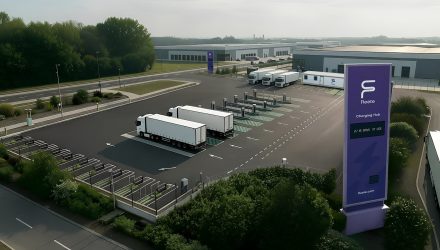
Euro6 technology has fixed scenes like this
Letting the next government know what’s what
The British Vehicle Rental and Leasing Association has produced a five-point strategy that would help the next government tackle the problem of road transport-based air pollution.
It has issued the advice in response to the UK’s Supreme Court ruling, which this week ordered the UK government to produce new air quality plans and submit them to the European Commission by 31 December 2015. Failing to do so, the UK runs the risk of fines being issued by Brussels.
The UK faces a particular challenge with nitrogen dioxide (NO2) levels, which are often associated with diesel vehicles. The BVRLA believes that the following five measures could make a swift and significant impact on NO2 levels across the UK:
- Help regional authorities to use their newly devolved transport powers by providing a national framework for ultra-low emission zones
- Adopt the current tax regime to cover NO2 emissions (incentivising the adoption of new EURO 6 standard for diesel engine emissions, for example), ensuring that any changes are well-signposted and non-retrospective
- Re-introduce 100% first-year allowances for companies renting or leasing ultra-low emission cars
- Provide better in-life incentives – for example freedom from tolls, congestion charges or parking fees – to encourage greater uptake of ultra-low emission vehicles
- Do more to support car clubs, car sharing and other alternatives to car ownership, and provide more low-emission public transport
“Our members advise millions of businesses and consumers on which vehicles to choose and how they should be operated. We believe the measures we have set out could have a significant and positive impact in helping the government meet its air quality goals.” said BVRLA Chief Executive, Gerry Keaney.
BVRLA members own and operate nearly four million cars, vans and trucks, accounting for more than 10% of the vehicles on UK roads. The average leased or rental car on fleet in 2014 emitted just 122g/km CO2, which was 22% less than the average CO2 emissions for the general car parc (156.6g/km).





